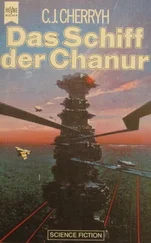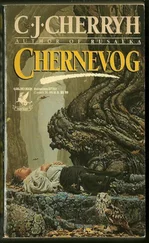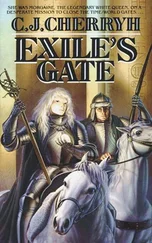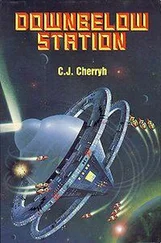C. Cherryh - Kesrith
Здесь есть возможность читать онлайн «C. Cherryh - Kesrith» весь текст электронной книги совершенно бесплатно (целиком полную версию без сокращений). В некоторых случаях можно слушать аудио, скачать через торрент в формате fb2 и присутствует краткое содержание. Жанр: romance_sf, на английском языке. Описание произведения, (предисловие) а так же отзывы посетителей доступны на портале библиотеки ЛибКат.
- Название:Kesrith
- Автор:
- Жанр:
- Год:неизвестен
- ISBN:нет данных
- Рейтинг книги:3 / 5. Голосов: 1
-
Избранное:Добавить в избранное
- Отзывы:
-
Ваша оценка:
- 60
- 1
- 2
- 3
- 4
- 5
Kesrith: краткое содержание, описание и аннотация
Предлагаем к чтению аннотацию, описание, краткое содержание или предисловие (зависит от того, что написал сам автор книги «Kesrith»). Если вы не нашли необходимую информацию о книге — напишите в комментариях, мы постараемся отыскать её.
All Rights Reserved
Cover art by Gino D'Achille
Frontispiece sketch by the Author
For DON WOLLHEIM with most especial appreciation
FIRST DAW PRINTING, AUGUST 1978 123456789
PRINTED IN U. S. A.
Kesrith — читать онлайн бесплатно полную книгу (весь текст) целиком
Ниже представлен текст книги, разбитый по страницам. Система сохранения места последней прочитанной страницы, позволяет с удобством читать онлайн бесплатно книгу «Kesrith», без необходимости каждый раз заново искать на чём Вы остановились. Поставьте закладку, и сможете в любой момент перейти на страницу, на которой закончили чтение.
Интервал:
Закладка:
Weather hazardous. And incident with regul likely.
"That's something I can avoid. It's my job. It's what I know how to do."
Argument persuasive. Can you guarantee no incident?
"On my life."
Estimate correct. If incident occurs, then regul law prevails out there. You understand. Survey facilities, plant, port, return. Can cover you till dark.
"Yes, sir." He was relieved in some part; he did not look forward to it: he knew the hazard better perhaps than Stavros did. But for once he and the honorable Stavros were of one mind. Hunting out the hazards was more comfortable than ignoring them.
He rose, looked outside, found the dusei's dark line vanished in that brief interval. He blinked, tried to see through the haze of rain, made out little in the distance.
"Sir," he murmured to Stavros by way of farewell; Stavros inclined his head, dismissing him. The screen stayed dark.
He went quickly to his own quarters and changed uniforms, to khaki weatherproofs and sealed boots, still common enough in appearance that he did not think regul would notice the difference. He put into the several pockets a tight roll of cord, a knife, a packet of concentrates, a penlight, whatever would fit without obvious outlines. He flipped the hood into the collar and zipped the closures.
Then he strolled out into the hall on a pattern he had followed several times a day since he had studied the layout of the building, down the hall to the left and out toward the observation deck window. No one was in the hall there. He opened the door and went out into the rain-chilled air, walked the circuit of the low-walled observation deck, looked over his shoulder to see that the hall beyond the doors was still clear.
It was.
He quite simply sat down on the edge of the wall, held with his hands as he dropped, and let go. The regul stories were short by human standards. He landed on cement at the bottom, but it was not a hard drop at all, only a flex of the knees; and the cement showed no tracks. By the time that he reached the edge of the concrete and disappeared into the gentle rolls of the landscape, he was confident that he was unobserved.
He walked toward the water plant, turning up the hood of his uniform as he went, for he knew the warnings about the mineral-laden rains and cared to expose as little of his skin as possible. Now off the pavements of the city he left tracks as plain as wet sand could show them, but he did not reckon to be tracked at all. He felt rather self-pleased in this, which he had thought about for days, idle exercise of his professional mind during the long inactivity in the Nom: the fact was that no regul could have possibly done what he had just done, and therefore the regul had not taken precautions against it. Such a drop would have been impossible to their heavy, short-legged bodies, and likewise there was no regul that could come tracking him crosslands.
That would take a mri.
And that was the only possibility that made him a little less self-pleased than he might have been under the circumstances. He had wanted arms at the outset of the voyage, but the diplomats had denied them to him: unnecessary and provocative, they had reasoned. Now he was unarmed but for the kit-knife in his pocket, and a mri warrior could carve him in small portions before he could come close enough to make use of that for defense.
The fact was plainly that if regul would set a mri on his trail, he was dead; but then, he reasoned, if regul would dare do that, then the treaty was worth nothing, and that fact had as well be known early.
There was also the possibility that the mri were out in force, and that they were not under regul control; and that most of all needed to be known.
For that reason he exercised more caution in his walking than he would have shown if he feared only regul: he watched the ridges and the shadows of gullies, and took care to look behind him, remembering the dark shapes that had moved upon the hills, the dusei that were out somewhere: he crossed dus-tracks, long-clawed, ominous reminders that there were hunters aprowl other than regul or mri.
Briefings said that the beasts did not approach regul dwellings.
Briefings also said that crossing the flats off the roads was not recommended.
The jetting steam of geysers, the crunch of thin crusts underfoot, warned him that there was reason for this. He had to draw a weaving course around hot zones, approaching the lowest part of the flats, that near the seashore and the water plant.
There was a road of sorts, badly washed, along the seacoast. Parts of it were underwater. A regul landsled was down in a trench where it had run off the edge.
Duncan sat down, winded in the thin, cold air, his head and gut aching, and watched from a distance as a regul crew tried to extricate it. He could see the water plant clearly from this vantage point. There was chaos there too, beyond its protective fences. The towers extended far out into the white-capped water, and several of those towers were in ruins.
From what he could see there was no possibility those towers could even be cleared for repair in the few days before human ships would arrive, certainly not with prevailing weather. What was more, he could not see any evidence of heavy machinery available to do repairs.
Realistically estimating, it was not going to be done at all. A large human occupation force was going to land, having to depend totally on ships' recycling: irritating, but possible—if there was a place to land.
He looked to the right along the shoreline, toward the city and beyond, where he could see the low shape of the Nom– no building high enough to obstruct his view of the port. He recognized Hazan, saw its alien shape surrounded by gantries, a web of metal.
There was no way to set a ship down on the volcanic crusts that overlay most of the lowlands. If the port was in the same condition as the water plant, then there was going to be merry chaos when the human forces tried to land.
And the regul had not been forward to inform them of the extent of damages to the facilities at the plant: they had not lied, but neither had they volunteered all the truth.
He drew a breath of tainted air and looked behind him suddenly, chilled to realize that he had been thinking about something other than his personal safety for a few seconds.
The horizon was clear. There were only the clouds. A man did not always find himself that fortunate in his lapses.
He let go that breath slowly and gathered himself up, conscious of the pounding of his head and the pounding of his heart in the thin air. He saw a way to work around some low rocks and a sandy shelf and so cross between the city and the sea, working toward the port. Regul were reputed to have dim eyesight—to be dull, as it happened, in all sensory capacities. He hoped that this was so.
Stavros, sitting back in the embrace of his regul machine, had said that he could cover his absence. He reckoned that Stavros might be good at that, being skilled at argument and misleadings.
Out here, he knew his own job—knew with a surety that the instinct that had drawn Stavros to choose a SurTac for Kesrith had been a true one. Stavros had not ordered him, had only relied on him, quietly—had waited for him to move of his own accord, sensing, perhaps, that a man trained in the taking of alien terrain would know his own moment.
He could not afford a mistake. He was afraid, with a different sort of fear than he had ever known in a mission. He had operated alone before, had destroyed, had escaped—his own life or death on his head. He was not accustomed to work with the life or death of others weighing on his shoulders, with the weight of decision, to say that an area was safe or not safe for the landing of a mission involving hundreds of lives and policies reaching far beyond Kesrith.
Читать дальшеИнтервал:
Закладка:
Похожие книги на «Kesrith»
Представляем Вашему вниманию похожие книги на «Kesrith» списком для выбора. Мы отобрали схожую по названию и смыслу литературу в надежде предоставить читателям больше вариантов отыскать новые, интересные, ещё непрочитанные произведения.
Обсуждение, отзывы о книге «Kesrith» и просто собственные мнения читателей. Оставьте ваши комментарии, напишите, что Вы думаете о произведении, его смысле или главных героях. Укажите что конкретно понравилось, а что нет, и почему Вы так считаете.







